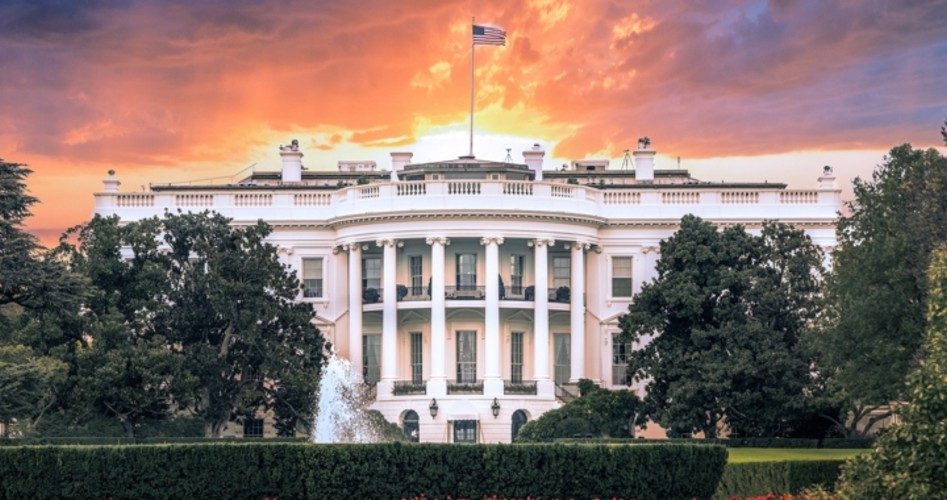
The White House has answered CNN’s lawsuit seeking a court’s relief in the expulsion of anti-Trump reporter Jim Acosta.
CNN sued the president and his aides because the White House suspended Acosta’s press pass after he refused, having asked a question and a follow-up, to surrender a microphone during a press conference. CNN argued that the White House trespassed the First and Fifth Amendment of the anti-Trump network and its activist reporter.
The White House answered thusly: Permitting any given reporter access to the White House is the sole purview of the White House and CNN’s and Acosta’s rights were not and are not harmed.
Judge Timothy J. Kelly, a Trump appointee, will hear the case this afternoon in U.S. District Court for Washington, D.C.
White House Answer
The 23-page rejoinder to CNN’s lawsuit cites more than three dozen cases as precedent, and says CNN’s and Acosta’s First Amendment claims are without justification.
“With respect to their First Amendment claim,” the answer says, “the President and his staff have absolute discretion over which journalists they grant interviews to, as well as over which journalists they acknowledge at press events. That broad discretion necessarily includes discretion over which journalists receive on-demand access to the White House grounds…. No journalist has a First Amendment right to enter the White House and the President need not survive First Amendment scrutiny whenever he exercises his discretion to deny an individual journalist one of the many hundreds of passes granting on-demand access to the White House complex.”
Similarly, the president can open the doors of the White House to political allies but refuse to meet political foes, or refuse to answer questions from a hostile journalist; this last a right the courts have upheld.
Just as the president need not sit for an interview with a journalist he doesn’t like, he need not permit access to the White House to any and all journalists: “The President and his staff have absolute discretion over which journalists they grant interviews to, as well as over which journalists they acknowledge at press events. That broad discretion necessarily includes discretion over which journalists receive on-demand access to the White House grounds.”
The White House admits that it cannot bar Acosta arbitrarily, as the D.C. Circuit decided in 1977. But it banned him, it argues, because he disrupted the press conference: “The stated rationale for the revocation of Mr. Acosta’s pass — that he was disrupting press proceedings — is evident from the video he has proffered.” Thus, the argument continues, “Acosta’s decision to engage in conduct that disrupts press events and impedes other reporters from asking questions provides a more-than-sufficient reason for revoking his hard pass.”
Nor did the president retaliate against CNN or Acosta because of his discourteous, intemperate behavior in the White House, or the network’s 24-7-365 anti-Trump hatefest.
About “50 other CNN journalists retain hard passes to enter the White House complex, undercutting their argument that revoking Mr. Acosta’s pass was part of an effort to punish or silence CNN,” the brief states. “Plaintiffs’ complaint alleges that this antipathy is longstanding, without any plausible explanation as to why there were no allegedly retaliatory actions against Mr. Acosta previously.”
Thus, the brief reiterated what White House spokeswoman Sarah Huckabee Sanders said when Acosta got the boot:
After Mr. Acosta asked the President two questions — each of which the President answered — he physically refused to surrender a White House microphone to an intern, so that other reporters might ask their questions. This was not the first time this reporter has inappropriately refused to yield to other reporters.
The White House cannot run an orderly and fair press conference when a reporter acts this way, which is neither appropriate nor professional. The First Amendment is not served when a single reporter, of more than 150 present, attempts to monopolize the floor. If there is no check on this type of behavior it impedes the ability of the President, the White House staff, and members of the media to conduct business.
Media Side With CNN
Not surprisingly, the media sided with CNN. Among the sympathziers was Fox News, which was something of a surprise given the network’s generally friendly coverage of the president.
“Secret Service passes for working White House journalists should never be weaponized,” said Fox News chieftain Jay Wallace. Wallce said the network will file an amicus brief with the court.



